Insurance Law
Differences Between NC and SC on Insurance Coverage, Comparative Negligence, and Punitive Damages
Car owners and drivers must have liability insurance in both North Carolina and South Carolina in case they cause an accident. Car owners can also purchase other types of coverage to protect themselves if the responsible driver does not have insurance and if the owner or driver causes the accident. Additionally, if you are in…
Read MoreChanges to North Carolina Auto Insurance Law: What to Expect in 2025
In 2025, North Carolina is making some big changes to their auto insurance laws. This year, you’ll see higher minimum liability limits and new rules regarding inter-policy stacking. Lawmakers hope these changes provide better protection for drivers and accident victims. However, increasing the limits can also lead to higher insurance costs for drivers. Today, we’ll…
Read MoreWhat Happens If the Insurance Company Acts in Bad Faith?
When you file a personal injury claim, you immediately expect your insurance company to treat you with fairness as well as prioritize your needs. However, when an insurance company is not holding up their part of the deal, this usually means they are acting in bad faith. What’s considered bad faith? The goal of most…
Read MoreNorth Carolina Medical Payments Coverage
Medical payments coverage is optional coverage which provides certain protection to insureds under a policy who are injured in an automobile accident. It is designed to provide reimbursement of medical expenses up to the policy limits purchased. Common coverage amounts can be as little as $500 and as much as $1 million. Unlike a liability…
Read MoreRule 414: Evidence of Medical Expenses “Paid Versus Incurred”
Rule 414 of the North Carolina Evidence Code limits evidence offered to prove past medical expenses to evidence of the amounts actually paid to satisfy the bills that have been satisfied, regardless of the source of the payment, and evidence of the amounts actually necessary to satisfy the bills that have been incurred but not yet satisfied.…
Read MoreAm I Entitled to a Rental Car Following an Accident?
After a vehicle accident, a rental car may be provided in one of two ways. First, once a liability insurance carrier for an at-fault driver has accepted liability, they are responsible for paying the cost of a rental vehicle from the date of the accident. The length of time, however, depends on whether the vehicle is…
Read MoreNew Changes to § 6-21.1 Attorneys Fees in the “Small Case”
As part of a broader package of tort reforms passed by the North Carolina General Assembly in 2011, the legislature has modified North Carolina Gen. Statute § 6-21.1. The statute grants authority to a trial judge to award attorney fees as part of costs to a prevailing plaintiff. These costs are taxed to the defendant.…
Read MoreUnderstanding Uninsured Motorist Coverage vs. Underinsured Motorist Coverage in North Carolina
Uninsured motorist coverage or “UM” is coverage which protects you in the event you are struck by a motorist who does not have liability insurance. In determining whether or not the “at fault” vehicle is covered by liability insurance, it is first necessary to look for insurance coverage on the vehicle itself. If there is…
Read More